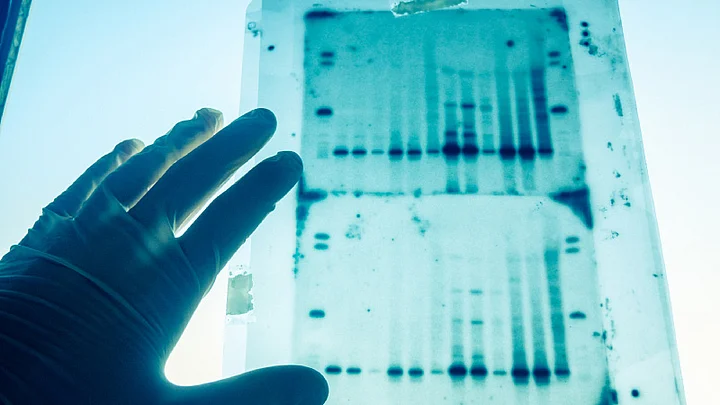Need for a National DNA Database
- Sheena Bora’s case brings forth the issue related to unclaimed bodies in India where around four lakh such bodies are disposed of every year
- Union government has told the Supreme Court that there are privacy-related issues around a National DNA Data Bank
- FBI is successfully managing a vast DNA database at national, state and local levels
Appearances are deceptive and so is the mind of a human being which doesn’t take long to turn to viciousness. It is also said that no crime is perfect but the investigations could be imperfect resulting in whopping acquittals in registered criminal cases including homicide cases which were extremely heinous.
At the same time, at least four lakh unidentified bodies are disposed of every year by the authorities in India where thousands go missing, in the same circumstances as strangulated Sheena Bora whose body was set ablaze to wipe out her recognition three years ago allegedly by her mother Indrani Mukerjea and her former husband Sanjeev Khanna, a Kolkata businessman.
Sheena’s charred body could have been identified by the Raigad cops in Maharashtra had a national DNA database been in place.
Need for a DNA-Profiling Law
The government has been toying with enacting a law for making it mandatory to record DNA profile of all the people for identification on the basis of scientific inputs while Aadhar card takes care of pilferage in distribution of subsidiaries and residential profile.
The Narendra Modi government amended the Human DNA Profiling Bill which was initially drafted by the NDA government in 2007 with an objective of regulating the use of DNA for forensic and other purposes. It seeks to create DNA databases at the state, regional, and national level.
However, the government has been seeking adjournments in a public interest litigation filed in the Supreme Court by an NGO Lokniti Foundation in 2012 which has sought direction for constituting DNA profiling database of unclaimed bodies to explore their possible link to missing persons.
Unidentified bodies could be due to serious crime and since the bodies cannot be identified using traditional methods, perpetrators of possible crime remain untraced. The families to which the victims belong, never come to know about the fate of their near and dear ones. Ashok Dhamija, the lawyer for Lokniti foundation, has told this to the top court while stressing the need for a centralised DNA data bank and database.
“One of the main reasons for large number of bodies remaining unidentified is that person freely moves from one part to another in search of work and members of poor families have no means to keep in touch with their near and dear ones. It becomes difficult for the local police to identify persons who have no local connection and who have died without any one complaining of death caused by any mischief,” Dhamija offered another reason why a DNA data base and bank is needed in a country of diversity.
Privacy-related Issues
The Union government has told the Supreme Court that there has been a serious concern on the privacy-related aspects of establishing a National DNA Data Bank. Moreover, the proposition is extremely cost consuming.
The Court has left it to the government to address the question of whether a DNA databank can be established without the passing of a legislation providing legal basis for the collection, profiling, database, and use of DNA samples.
Union Minister of State for Home Affairs Kiren Rijiju in August last year told Lok Sabha that the incomplete data (provisional) gathered from different states disclosed that 1.56 lakh bodies had been found in 2014.
This figure was up to August. A year earlier in 2013, a whopping 4,40,810 (over 4, 40 lakh) unidentified bodies had been found in different parts of the country, Rijiju had shocked the law makers.
Taking a Leaf out of FBI’s Book
In the absence of the government’s response regarding the possibility of setting up a DNA database and bank as big as sought by the Lokniti Foundation, lawyer Dhamija has said that the Federal Bureau of Investigation (FBI) of USA initiated CODIS (Combined DNA Index System) in the early 1990’s and this was an attempt towards blending forensic science and computer technology into an effective tool for solving violent crimes.
CODIS is implemented as a distributed database with three hierarchical levels -national, state and local level. Currently, FBI also manages NDIS (National DNA Index System). These DNA systems, inter alia, extensively use DNA profiling for assisting in criminal investigation, etc.
The UK Police has also successfully implemented DNA database in 1995 based on the FSS -i3 software.
A survey conducted by the INTERPOL regarding global DNA profiling in 2008 showed that out of 172 INTERPOL member countries, 120 member countries, (approximately 66% of the countries), were using the method of forensic DNA profiling in criminal investigation. Out of those 172 member countries, as many as 54 countries had set up their own full-fledged National DNA databases.
(The writer is a Delhi-based senior journalist)
(At The Quint, we question everything. Play an active role in shaping our journalism by becoming a member today.)
